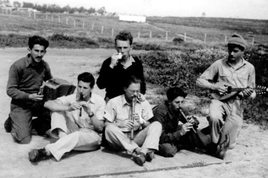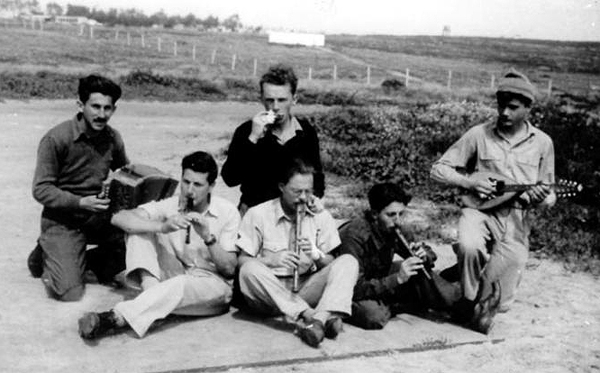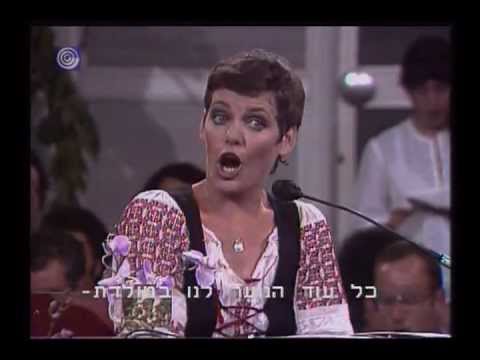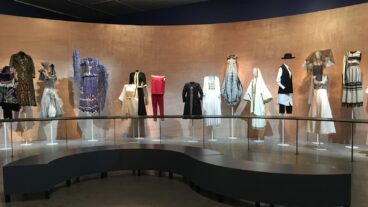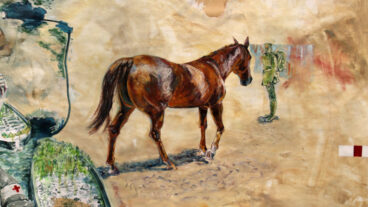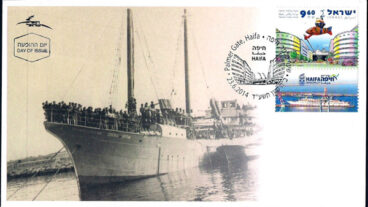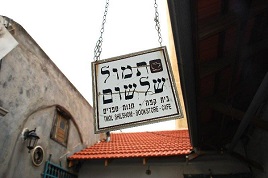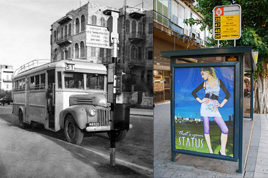Shirah b’tzibur — the sing-along — is one of those nice Israeli traditions that started out small, gained in popularity, grew to massive proportions, fell out of favor and, in recent years, has made a comeback. The new model features up-to-date songs — rock, pop, and Middle Eastern — and appeals to a new generation of young people.
During the early days before the founding of the State, the pioneers would gather round the fire after a long day of hard agricultural labor, and sing, often accompanied by an accordionist.
These songs were collected into song books and later, with the advent of the slide projector (and readily available electric power), lyrics transcribed and presented in slideshows by accordion-playing song-leaders to the singing public.
It was in the Eighties that shirah b’tzibur got big. The Jordan Valley Singing Club was invited to present a weekly television show (this was before the advent of commercial TV in Israel), and club song-leader Saraleh Sharon became the nation’s song-leader. (Sharon was recently awarded a lifetime achievement award by IUPA – the Israeli Union of Performing Artists).
During the Nineties, however, sing-alongs were considered old-fashioned entertainment for the elderly and relegated to the older generations. The comeback began during the Second Intifada, which forced people to seek both indoor entertainment and search for events that engendered a sense of togetherness. In a 2012 essay published by Maariv (in Hebrew) entitled “Second Person Plural: How the sing-along came to dominate our lives”, author Ofer Matan interviews Sharon who relates that sometime around the year 2000, she was invited to lead singalongs at the trendy Genki Club in Tel Aviv. “The difference compared to the Eighties was the crowd — young people standing, singing and make merry — and always very late at night”.
In addition to a youth audience, Genki attracted a celebrity clientele. Since that time, Matan writes, the state of sing alongs in Israel has never been better.
In the ensuing years, other song-leaders have emerged to form groups like the fun and funky BubiZemer, a club that meets periodically to — as founders Arbel Fischler and Miron Eger state with no little humor — “to perpetuate one of the most absurd inventions of the Zionist enterprise”.
“Its unclear what has attracted, over the years, hundreds if not thousands of people to gather together, shoulder to shoulder, and sing. And yet, we too were struck by the epidemic, and are now set to embark on a cultural revolution…
“The club currently numbers about a thousand happy customers who meet every three weeks, or two, or four, to sing songs both old and new. Naomi Shemer, Mashina, Eli Gorlitzky, EthniX, and Shimon Israeli – all are our friends. We love them all!”
This week, the BubiZemer will meet in the courtyard of the Museum of Underground Prisoners in Jerusalem, a museum commemorating the activity of the Jewish underground—Haganah, Irgun and Lehi—during the period leading up the establishment of the State of Israel. The organizer invite all to attend. More information is available via their Facebook page and website.




